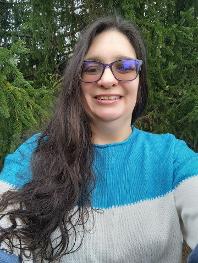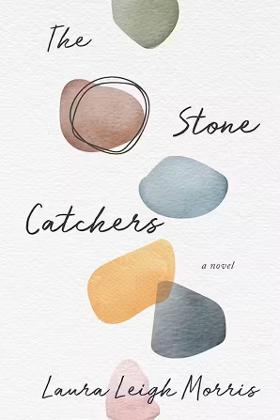Book Review
Laura Leigh Morris’ first novel The Stone Catchers examines the lives of four survivors in the aftermath of a mass school shooting. The shooting takes place at the fictional Brickton Community College, a school that is situated in an economically-depressed West Virginia mining town, and follows Donetta Freeman, a professor at the college, and three of her students. The students are Charlie Folger, who doesn’t have a car, so he walks or runs everywhere; Priscilla Silver, a single mother to a baby daughter; and Miller James, a laid off miner who now works nights at a local convenience store while taking classes at the college.
Told from four alternating third person points of view, the novel begins on the day of the shooting, a day when Professor Donetta Freeman, a mom to two young kids herself, considered canceling class because one of her children was throwing up, but in the end did the busy mom’s trick of guiltily sending him off to school hoping for the best. On the day of the shooting, her digital communication students were supposed to spend the class period interviewing community members about the impact of fracking. It was an event that they had been preparing for since the start of the class. In the first chapter, told from Donetta’s point of view, the narrator notes, “all semester, the students had been doing research and learning how to make a podcast. This morning, they’d record interviews with two families who lived near a drilling pad, and she’d have hated to cancel class.”
The novel narrates the events of the shooting itself and describes how the four characters survive it. But the focus of the novel isn’t on the shooting itself. It’s on the aftermath and the trauma. The novel doesn’t focus directly on gun politics but rather what it feels like to be involved in a shooting and the impact that it has on the characters’ day-to-day lives following the tragedy.
In a craft essay for Cleaver Magazine on writing timely fiction, Laura Leigh Morris—who is originally from north central West Virginia and earned her MFA from West Virginia University and now teaches at Furman University in South Carolina—says that the novel idea came to her in 2016 after the Pulse Nightclub Shooting and after an active shooter training. In an essay about the book that Morris wrote for Necessary Fiction, she states, “The night after receiving mass shooter training at my university, I woke from a dream of four people attacking a shooter who’d breached the door of their classroom.” That dream became the basis for her novel.
The shooting itself takes place in the first pages of the novel, but the rest of the book deals with who the main characters try to turn to for comfort and who and what provides solace to them. It delves into both the healthy and unhealthy ways the survivors cope with the tragedy and how the community responds.
Traumatized from the events of the shooting, Donetta pictures her own children as shooting victims. Morris describes the horrors that Donetta imagines saying, “Lily Jane had a perfect hole in the middle of her forehead. Donetta jumped back, almost screamed, but pressed her lips together and averted her gaze. Travis watched her now, and for a second he was covered in blood.” Because of the role that she played in violently disarming the shooter, Donetta feels like she can’t touch her children. She sees herself as a murderer.
After the shooting, Miller James, a divorced father whose wife has custody of his daughter, camps out in front of his ex-wife’s house to make sure his daughter, Benji, is okay. The narrator notes, “Ever since the night of the shooting, Miller had begun to panic, to picture a prowler coming in his daughter’s bedroom window, breaking the thin glass, and taking her. Or shooting her, never giving her a chance.”
Priscilla Silver, on the other hand, turns to her family, specifically her mother and her infant daughter, for comfort. Following the shooting, Priscilla calls her mother and asks to speak to her cranky baby daughter, Rhonda, a child who “cried at all hours, who made the apartment feel like a prison.” Normally, her daughter’s incessant crying is difficult for Rhonda to handle, but following the shooting, “she reveled in her daughter’s screams, that she was alive to hear them.” Priscilla hopes that in the aftermath of the shooting, she might be able to move back in with her mother, a mother who presses Priscilla to talk to reporters and “be the survivor spokeswoman.” Priscilla, wanting her mother’s approval, goes along with the plan, though it makes her uncomfortable.
Charlie realizes that as children, he and the shooter, had been “better friends than Charlie remembered. Here was clear
evidence he and Wayne had been like brothers: wearing identical outfits, setting up a tent in a yard barely large enough for it, two birthday cakes side by side with him and Wayne behind him
grinning broadly.”
Of the protagonists in the novel, Charlie Folger is the only one who doesn’t have any family to turn to locally. Two years ago, Charlie’s mom moved with a boyfriend to Texas, leaving him with her rundown trailer and no way to reach her. So when Charlie realizes that the shooter was someone he knew, a childhood friend even, he finds himself turning to the shooter’s mother for comfort, in part because he doesn’t have anyone else. Once in her house, Charlie realizes that as children, he and the shooter, had been “better friends than Charlie remembered. Here was clear evidence he and Wayne had been like brothers: wearing identical outfits, setting up a tent in a yard barely large enough for it, two birthday cakes side by side with him and Wayne behind him grinning broadly.”
The novel doesn’t really delve into the shooter’s motives per se though it was clear that the shooter, like many gunmen, had become an antisocial loner who had an unhealthy obsession with weapons. Rather, the novel tells the story of the survivors, the guilt they feel, and the long-term toll the trauma can take and how even the community’s attempts to make sense of the tragedy aren’t necessarily helpful for the survivors. Morris describes the college’s gym after the shooting “as draped in death and sadness.” From Miller James’ perspective, she writes, “This memorial wasn’t for people like him—it was for those searching for meaning in it all. Miller knew better. The shooting meant nothing.”
The book’s title comes from a conversation that Priscilla has with her mother in which she tells her daughter that she is the stone catcher. “You take what they can’t,” her mother says. “Someone thinks you should have let that boy live? You take it. The public needs someone to yell at. That’s you. Someone needs an interview? That’s you too.”
Laura Leigh Morris is the author of a previous book, Jaws of Life (WVU Press, 2018), a collection of stories, which is also set in the fictional community of Brickton, West Virginia, which Morris describes in this novel as “an old coal town with company roots.” When Charlie Folger goes back to visit the neighborhood where he used to live, he notices that “The houses had become more rundown in the decade since he’d last been there. Almost no space existed between them.”
Morris’ novel looks at the good and bad ways four people living in a struggling community cope with an all too familiar tragedy, a shooting which senselessly takes the lives of too many and leaves the survivors of mass shooting feeling guilty, shell-shocked, and alone. In the end, the characters in this novel both lash out and turn to each other. And their families, their friends, everyone around them feels the ripple of the violence and the havoc it has wreaked on their lives.

Lori D'Angelo is a grant recipient from the Elizabeth George Foundation, a fellow at the Hambidge Center for Creative Arts, and an alumna of the Community of Writers. Her first book, The Monsters Are Here, is forthcoming from ELJ Editions in October, 2024.

